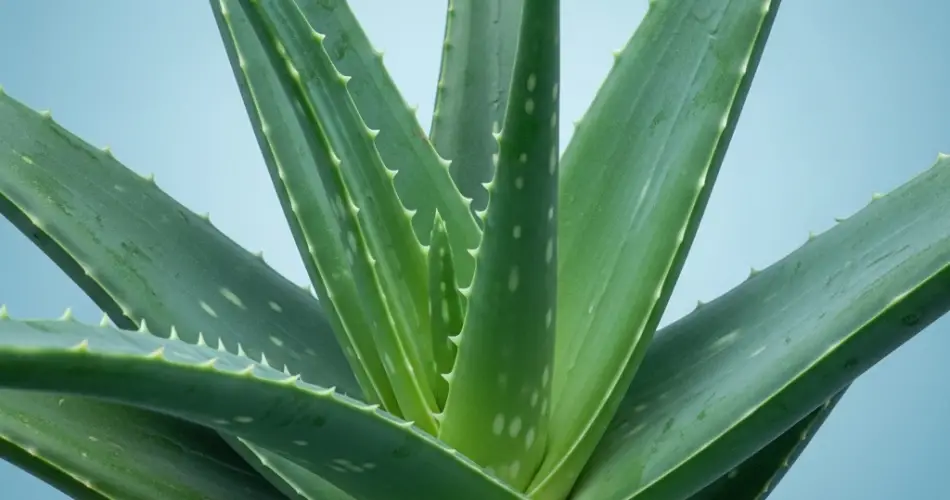Aloe vera, also known as sábila in many Spanish-speaking countries, is a staple in home gardens around the world—and for good reason. With its thick, fleshy leaves packed with a cooling gel, aloe vera is one of the most versatile and beneficial plants you can grow. Easy to care for and useful in countless ways, it’s no wonder so many gardeners insist on keeping at least one aloe plant close by.
Whether you’re interested in natural skincare, digestive support, or even homemade remedies for minor burns and insect bites, aloe vera is an essential part of any home remedy kit.
What is Aloe Vera?
Aloe vera (Aloe barbadensis miller) is a succulent plant native to arid regions of Africa but now cultivated around the world. It thrives in warm climates and can be grown indoors or outdoors in containers or garden beds. Its thick, green, lance-shaped leaves contain a clear gel rich in vitamins, enzymes, and antioxidants.
This plant has been used for thousands of years in traditional medicine, cosmetics, and natural health practices due to its powerful healing and soothing properties.
Health Benefits of Aloe Vera Gel
Aloe vera gel—the transparent substance found inside the leaves—is widely known for its ability to soothe and heal the skin. But its benefits go far beyond surface-level treatments. Here are some of the most popular uses:
-
Burn relief: One of aloe vera’s best-known benefits is its ability to soothe sunburn and minor thermal burns. The gel cools the skin, reduces inflammation, and accelerates healing.
-
Wound healing: It promotes skin regeneration and can help minor cuts, scrapes, and abrasions heal faster.
-
Anti-inflammatory: Aloe contains compounds like acemannan and bradykinase that reduce swelling and inflammation.
-
Acne treatment: Its antibacterial and anti-inflammatory properties make it useful for calming irritated skin and reducing acne flare-ups.
-
Hydration: Aloe gel is deeply hydrating and can be used as a natural moisturizer for dry or sensitive skin.
Internal Uses and Digestive Support
Aloe vera isn’t just beneficial on the outside—it can also support internal health when consumed in moderation.
-
Digestive aid: Aloe vera juice may help with constipation and improve digestion due to its natural laxative properties. It supports gut health by soothing the lining of the digestive tract.
-
Detoxification: It helps flush out toxins from the body and supports liver function.
-
Immune system boost: Its antioxidant content helps protect the body from oxidative stress and supports the immune system.
Important note: Only consume aloe vera products specifically labeled for internal use. The latex found beneath the leaf skin can be irritating or harmful if ingested in large amounts.
How to Harvest Aloe Vera Safely
To extract the gel:
-
Choose a mature outer leaf from the base of the plant.
-
Cut the leaf close to the stem and rinse it thoroughly.
-
Let it sit upright for a few minutes to drain the yellow latex (this part can be irritating to the skin or stomach).
-
Slice the leaf open lengthwise and scoop out the clear gel using a spoon.
-
Use the gel immediately or store it in the refrigerator for up to one week.
You can apply it directly to the skin or blend it into natural remedies, homemade creams, or health drinks (when food-grade).
Growing Aloe Vera at Home
Aloe vera is one of the easiest plants to care for, making it ideal for both experienced and beginner gardeners.
Care Tips:
-
Sunlight: Prefers bright, indirect light but can tolerate full sun. Indoors, place it near a sunny window.
-
Watering: Water deeply but infrequently. Allow the soil to dry out completely between waterings. Overwatering is one of the most common causes of root rot.
-
Soil: Use well-draining soil, ideally a cactus or succulent mix.
-
Container: Make sure your pot has drainage holes to prevent standing water.
Aloe vera also reproduces by producing small offshoots (called pups), which you can separate and replant to grow more aloe plants.
Other Practical Uses Around the Home
-
Natural hand sanitizer: Combine aloe gel with alcohol and essential oils.
-
Aftershave treatment: Soothes irritation and hydrates the skin.
-
Hair care: Aloe can be used as a scalp treatment to reduce dandruff and improve moisture.
-
Pet care: In diluted form, it may help soothe minor irritations on pets (always consult a vet first).
Final Thoughts
Aloe vera is more than just a decorative plant—it’s a living first-aid kit, skin treatment, and digestive aid all in one. With minimal care and maximum benefits, it’s easy to see why so many gardeners keep this plant at home.
Whether you’re looking for natural wellness solutions or simply want a hardy, low-maintenance plant, aloe vera is a must-have. The next time you see one at the nursery, consider adding it to your collection—you’ll be glad you did.



